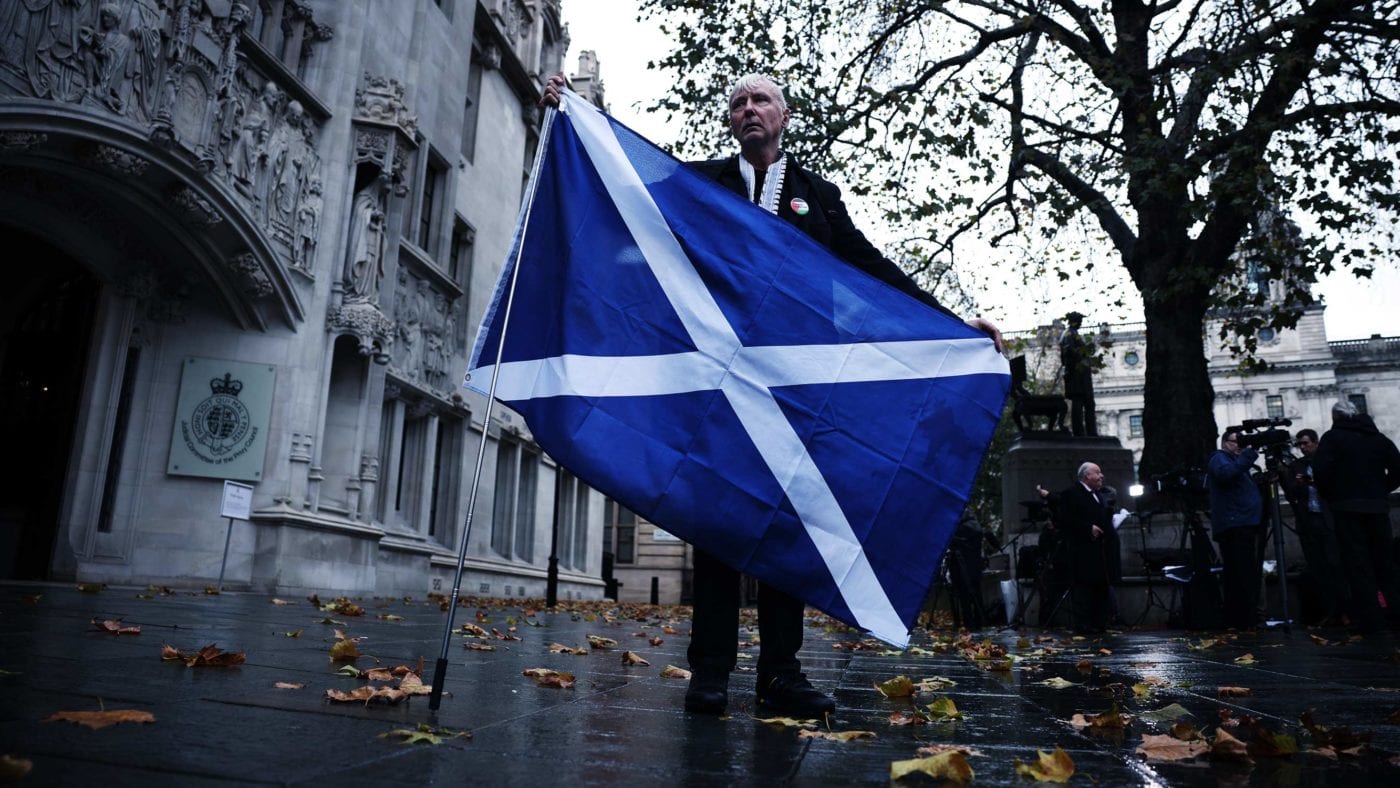The statement by Scottish Labour leader, Anas Sarwar after today’s Supreme Court ruling on whether the Scottish Government can legislate for a rerun referendum on independence, warrants some attention.
‘It was right for the Scottish Government to seek legal clarity on this question. The Supreme Court’s answer was clear and I thank them for their speedy work in this case. We must now focus on the problems facing our country, from rising bills to the crisis in our NHS. There is not a majority in Scotland for a referendum or independence, neither is there a majority for the status quo.’
I would take issue with that last line – it smacks of Labour’s perennial and self-destructive demands for more devolved powers. Since the Scottish Parliament was founded in 1999, such ‘strengthening’ of devolution has only benefited the SNP.
But the general tone of Sarwar’s statement is noteworthy for its moderate language. He understands that the Supreme Court’s ruling that Holyrood has no legal jurisdiction in matters affecting the constitution presents an opportunity to Scotland’s politicians to reset politics north of the border. Of course, the chances of their making the most of such an opportunity are vanishingly small, but it’s there for the taking nonetheless.
Sarwar, along with more serious minds in the pro-UK community in Scotland, recognises that gloating about the court’s decision will only exacerbate the deep divisions that have hobbled Scottish society since the independence campaign that culminated in 2014. He has nothing to lose and potentially quite a lot to gain in playing the statesman, by calling for a more urgent focus on those areas Holyrood is actually responsible for, and not crowing about the court’s ruling.
He’s a better man than I. After watching the court’s ruling on TV, I gleefully sang “God Save The King” down the phone to my mother-in-law (who was just as pleased as I was – at the ruling, not the singing). But such private air-punching aside, there can be little doubt that this is the biggest setback to the nationalist cause in too many years.
There hasn’t been a great deal for pro-UK Scots to celebrate in the last decade. Even the victory of the 2014 referendum proved fleeting, with subsequent landslide election victories for the SNP and only the briefest of hiatus before the campaign for IndyRef2 started gathering momentum.
Today’s ruling doesn’t change everything – the nationalists will never give up their demands for independence, not even if they were to fight and lose another dozen referendums. But it does change some things.
The SNP can, for example, no longer claim to have a mandate for a referendum that has been ruled explicitly and unambiguously beyond the remit of the Scottish Parliament. They will still claim it publicly, but even they must now admit privately that that’s a busted flush.
Their next tactic – aside from marches and flags and a lot of shouting – will be to redesignate, without the approval of the Scottish people, the next UK general election as a “de facto” referendum and hope to gain some sort of mandate for independence that way.
It’s a controversial plan. How should a vote for the SNP candidate be interpreted if it is cast (for example) by a traditional Labour voter who recognises that the only way to defeat the local Tory is to vote for the SNP? As a vote for independence?
At the heart of this plan is a terrible arrogance, the idea that one party can redefine the entire point of any election for its own political ends. Even Sturgeon herself opposed such a Plan B when it was mooted some years ago by some of her own activists. But desperate times call for desperate measures, and there has been no more desperate day for Scottish nationalism, at least in the last decade, than today.
For your average nationalist supporter, the court’s ruling will be no more than confirmation that Scots are living under the English yoke. But one vital aspect of their lordships’ ruling will enrage the more extreme sections of the nationalist community. Lord Reed pointed out the fact that Scotland is neither a former colony nor an oppressed nation, and so the SNP’s argument in the case, that its self-determination was a right under international law, was not valid.
That will truly infuriate the bekilted warriors peppering today’s demonstrations. So, OK, maybe we’re allowed to gloat a little bit.
Click here to subscribe to our daily briefing – the best pieces from CapX and across the web.
CapX depends on the generosity of its readers. If you value what we do, please consider making a donation.


